Is It Ok to Feed a Raccoon a Whole Chicken
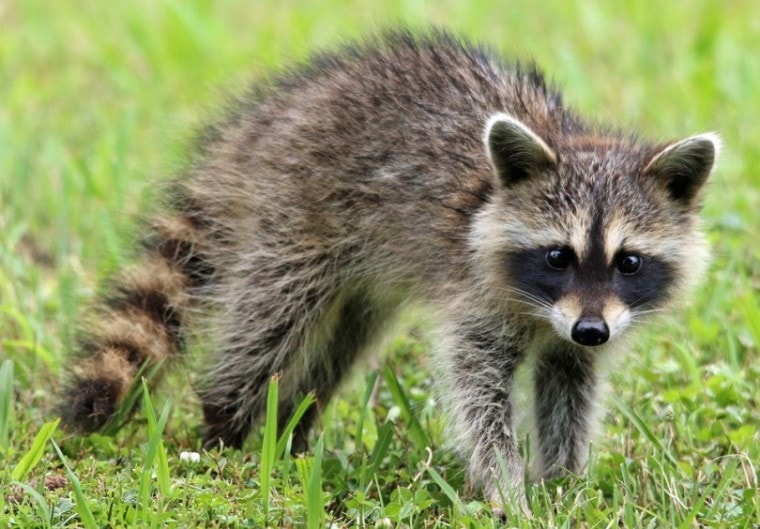
Raccoons may look cute and cuddly, but they're vicious killers. Raccoons will prey on a lot of small animals, including chickens.
Do raccoons eat chickens? Rarely, but they will attack chickens and may eat parts of them. If you have a backyard flock, you must take steps to protect your flock from the threat of raccoons.

Will Raccoons Attack and Eat Backyard Chickens?
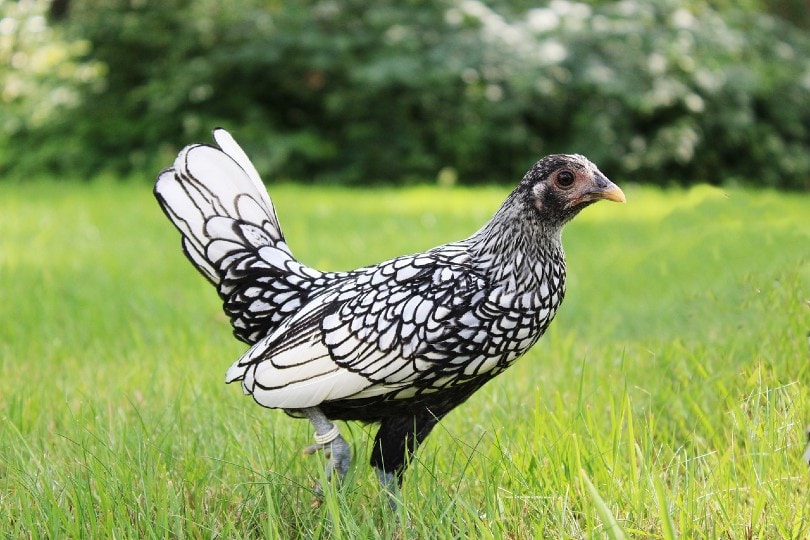
Whether you keep chickens as pets, for food, or for eggs, you put a lot of time, money, and effort into maintaining a healthy and happy flock. Unfortunately, wild carnivores generally target chickens as a quick and satisfying meal, and raccoons can stalk chickens at night when they're more vulnerable.
One of the challenges with raccoons is their dexterity. They are intelligent animals and have fingers like humans, so they can unlatch a coop or gate. While they'll rarely eat a whole adult chicken, they may raid a coop and kill most of your flock, consuming only parts of the chickens.
How to Spot a Family of Raccoons Nearby
You're most likely to come across raccoons in the late summer and fall. Baby raccoons are born in spring and weaned by summer, which is when they'll start seeking independence and establishing a territory of their own. This is also the time when all racoons are stocking up on food to support winter semi-hibernation.
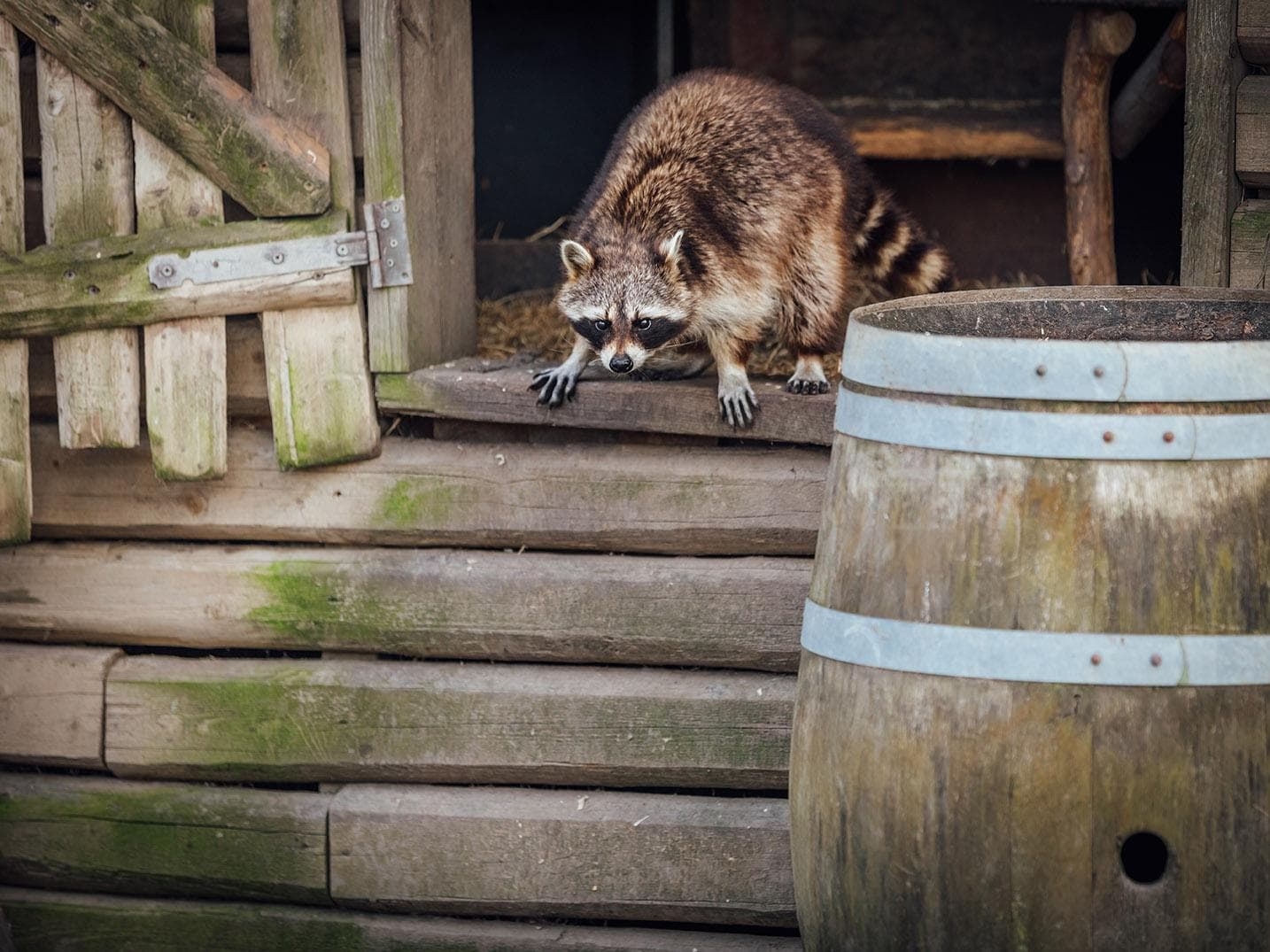
Here's what you should look out for:
Raccoon Sounds
One of the surest signs of raccoons in your area is the sound. Raccoons are among the most vocal predators and make high-pitched chattering noises. When they're angry, they emit a low-pitched growl. You're most likely to hear these sounds at dusk, when they're hunting.
Raccoon Tracks
Raccoon tracks are distinctive. They use their entire paws when they walk, so their tracks look like hands with five long digits and a claw at the end. Front and back tracks look identical.
If you notice tracks close to your chicken coop, you should secure your latch or coop door immediately with a childproof lock.
Raccoon Scat
Unlike other predators, raccoon scat isn't pungent and tends to be smaller. Raccoon droppings are between an inch and three inches in length.
Along with identifying nearby raccoons, the scat poses a risk to you, your chickens, and other pets. Raccoon droppings often contain roundworm. If you find a lot of droppings close to your home or near your chickens, call a hazardous waste expert to remove them.
You're not out of the woods if you're in an urban area. Raccoons will nest just about anywhere where food is available, which may mean cities. The main difference is that you're likely to see droppings inside your home, such as your basement or attic, instead of outdoors.

What Do Raccoons Eat?
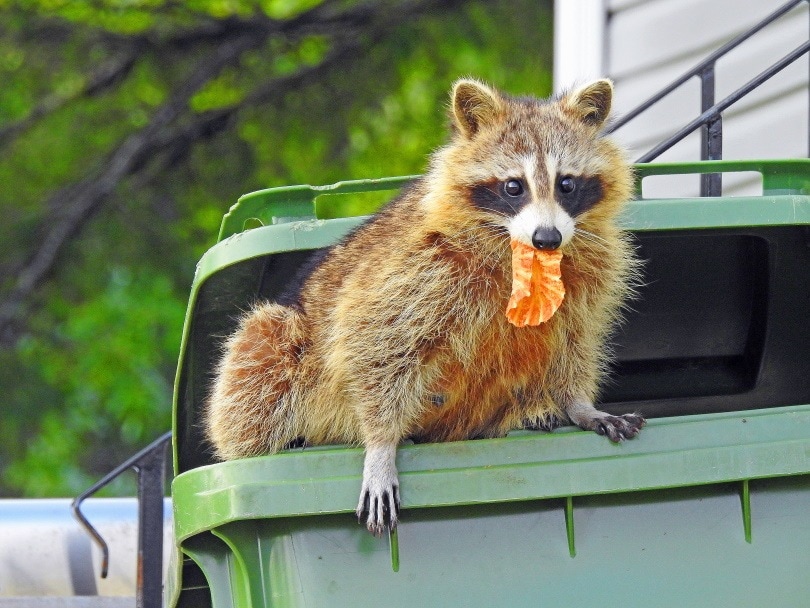
Raccoons are opportunistic scavengers – meaning they'll eat almost anything they come across. Raccoons will eat animals, such as frogs, crayfish, insects, worms, rodents, snakes, eggs, and chicks, if available.
Adult chickens are typically too big and heavy for a raccoon to carry, so it may attack and kill a chicken to eat the legs, head, and crop.
Raccoons have a lot of advantages with hunting. Their dexterity, excellent night vision, and strong sense of smell allow them to seek out food in low light conditions and catch elusive prey. They can also run fast and have the skills to open doors, unhook latches, and unlock simple locks.
They are lazy hunters, however. Raccoons will always take the easiest path in obtaining food, so if you leave garbage cans unprotected, leave eggs in your nesting boxes, or allow baby chicks outside unattended, a raccoon will see a quick meal.
Raccoons remember the hot spots for finding food as well, so if you have a raccoon once, you can expect it to return in the future.

How to Protect Your Flock
As you can see, raccoons are formidable predators that can wreak havoc for your flock. Fortunately, you can protect your chickens by securing them and making your yard and home less attractive.
1. Discourage Feeding

Raccoons are NOT pets. They're a big carrier of rabies and a wild animal that's never been successfully domesticated, so they're not a good choice as a pet. If your neighbor keeps raccoons as pets or feeds them, politely ask them not to and explain the reasoning behind it.
If you encounter a wild raccoon, don't corner it. Raccoons will become vicious when threatened, which could lead to severe bites and scratches.
2. Secure Food Sources
Raccoons are lazy in searching for food, so one of the best ways to discourage them is by removing the easy food sources around your home. Remember that raccoons can handle unsecured, heavy garbage lids and food storage containers, so be sure to use tight-fitting lids, locks, or bungee cords to secure them.
3. Avoid Open Feeders
Though convenient, open feeders for your chicken feed is a strong attractant for raccoons. Treadle feeders are an excellent alternative that's more difficult for raccoons to access, leading them to seek food elsewhere.
If you feed wild birds, feed the birds only during the day and bring the feeder in an night.
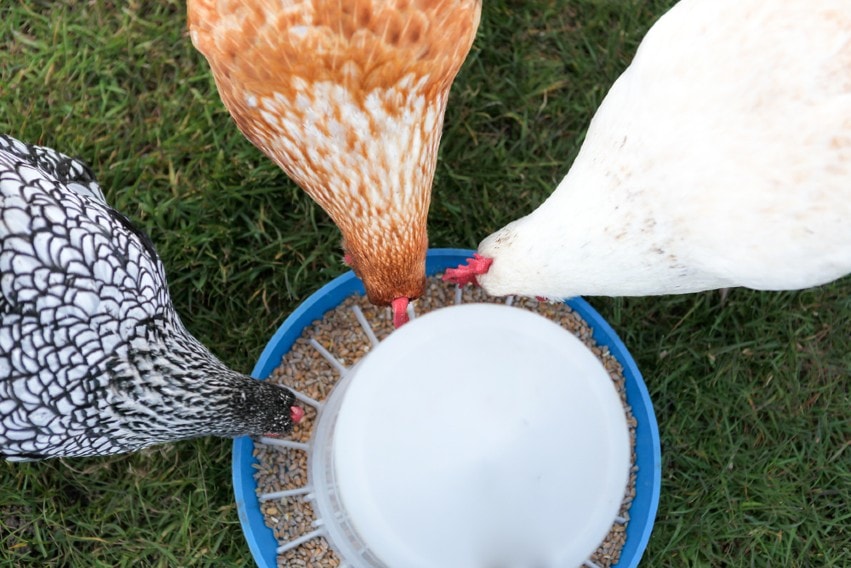
4. Monitor Eggs and Chicks
Eggs left in a nest are aa treasure for raccoons. When your hens are laying, collect eggs at least twice a day to ensure that unprotected eggs don't attract raccoons.
It's also important to watch your chicks. Baby birds are easy prey for raccoons, so make sure you watch them if they're outside and bring them in as dusk approaches.
5. Upgrade Fencing and Locks
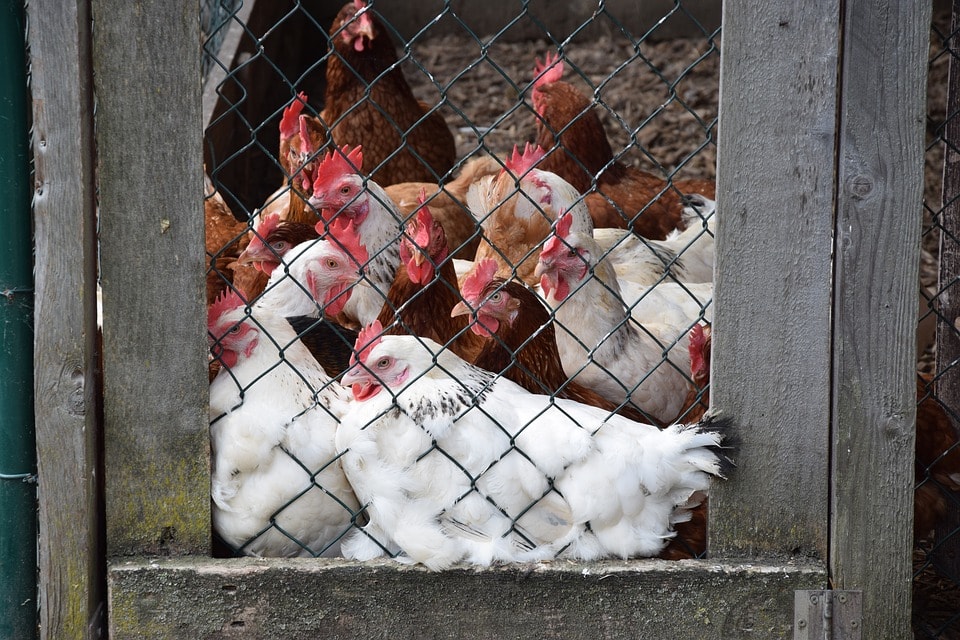
Chicken runs and chicken wire aren't enough to keep a raccoon out – opt for hardware cloth or strong chain-link fencing that raccoons can neither break nor squeeze through. Fencing should be at least six feet high and buried at least two feet underground.
Raccoons can open latches and locks in mere minutes, even if they're complex. Use strong padlocks with key or combination locks.
If you're worried about raccoons in your barn, attic, or basement, take the same precautions to secure the buildings.

Conclusion
Raccoons are only following their natural instincts, but they can be a challenging predator for a chicken owner. Keep an eye out for raccoon families, remove food sources, and secure your chickens to minimize the risk of raccoons attacking your chickens.
If raccoons become a problem and you find more and more around, remember that it's illegal to trap, shoot, or otherwise harm or remove raccoons on your own. Call a pet-removal service to have them humanely relocated.
Featured Image Credit: edbo23, Pixabay
Source: https://petkeen.com/do-raccoons-eat-chickens/
0 Response to "Is It Ok to Feed a Raccoon a Whole Chicken"
Post a Comment